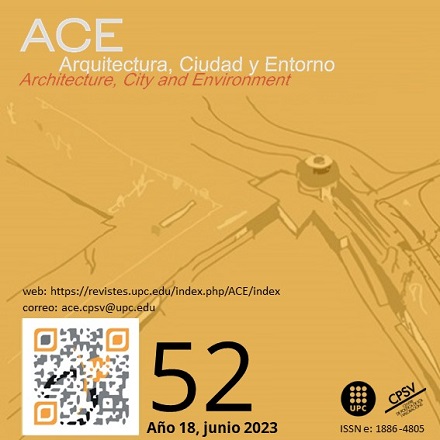Place-making as an Approach to Develop Informal Housing Area's Urban Spaces
DOI:
https://doi.org/10.5821/ace.18.52.11833Keywords:
informal housing areas, place-making, urban spaces, successful placesAbstract
Informal housing areas exist in most cities of the world, in both advanced and developing countries. Despite the efforts of countries to eliminate them, this pattern still exists. The urban spaces in these areas are social spaces with a mix of cultures and values and have many possibilities for improvement. Place-making is a quiet movement that reinterprets public spaces as the heart of society. Using space-making in urban spaces in informal housing areas can realize many benefits in many social, economic, or environmental aspects that contribute to improving and developing those areas. The research aims to study the relationship between place-making criteria and the inhabitants' characteristics of informal housing areas to confirm the importance of using the place-making approach in developing urban spaces in those areas and making them more efficient. A questionnaire was conducted on inhabitants of one of the informal areas in Tanta city, Egypt -on the outskirts of the city- and analysed statistically by SPSS. The analytical study shows a certain relation between place-making criteria and the inhabitants' characteristics of informal housing areas. So, the research suggests using the place-making approach in informal housing areas as an entry point for development and creating good places that improve the urban environment in such areas.
Published
Issue
Section
License
| INTELECTUAL PROTECTION CRITERIA |
At this moment, it is count with the "Oficina Española de Patentes y Marcas", while global protection it is being processed by the World Intelectual Property Organization (OMPI/WIPO). Nevertheless the International Standard Serial Number Office (ISSN) has given the following numbers ISSN: 1886-4805 (electronic version) and 1887-7052 (paper version). All articles will be peer reviewed, using double blind reviewing. |
| COPYRIGHT |
The article contents and their comments are authors exclusive liability, and do not reflect necessarily the journal editor commitee's opinion. All ACE published works are subject to the following licence CC BY-NC-ND 3.0 ES http://creativecommons.org/licenses/by-nc-nd/3.0/es/ It implies that authors do not hold nor retain the copyright without restrictions but only those included in the licence. |


































